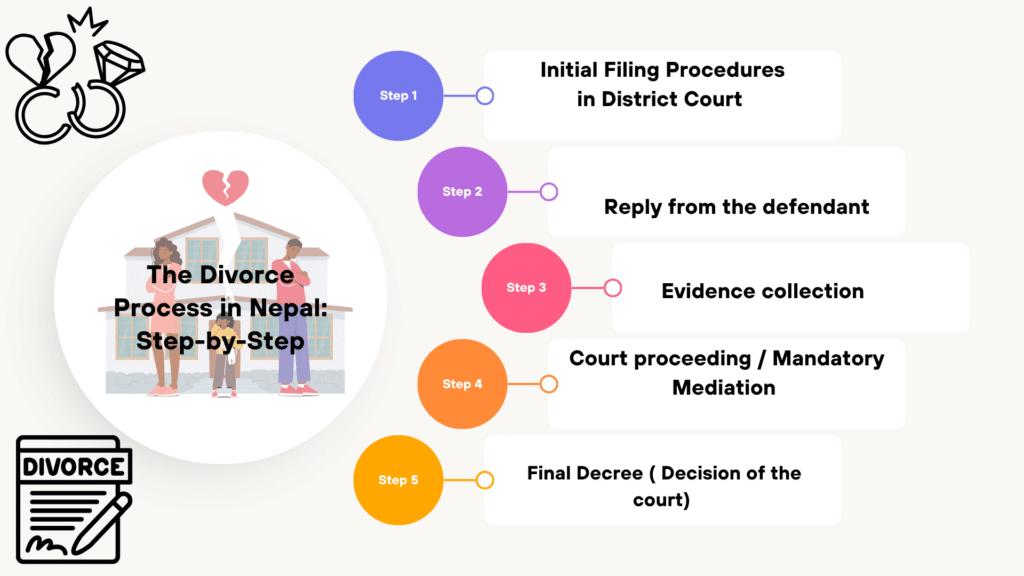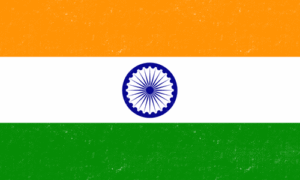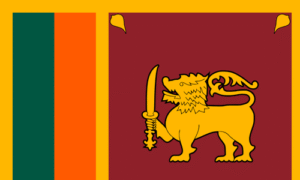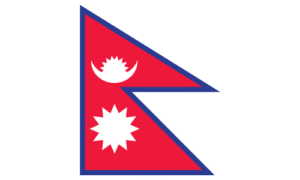How to file divorce in Nepal?
Updated on jan 1, 2026, Wednesday
Navigating the divorce process in Nepal can be emotionally challenging and legally complex. As family dynamics evolve, more Nepalese citizens are seeking legal separation, making it essential to understand the legal framework that governs marital dissolution. This comprehensive guide explores the intricacies of divorce process in Nepal, providing you with crucial information about legal requirements, court procedures, and practical considerations. Whether you’re contemplating divorce or supporting someone through this journey, understanding the legal landscape will help you make informed decisions and protect your rights under Nepalese family law.

Call us for free divorce consultation at- 977 9709090127
Divorce Law in Nepal
Historical Context of Nepalese Family Law
The legal framework governing marriage and divorce in Nepal has evolved significantly over the decades. Previously, divorce laws were heavily influenced by religious customs and traditional practices, with limited legal recourse for women seeking separation. However, the introduction of the Muluki Ain (General Code) in 1963 marked a significant shift in the legal approach to marital dissolution. Subsequently, the Country Code (11th Amendment) Act of 2002 further modernized divorce process in Nepal, introducing more equitable provisions for both spouses.
Current Legal Framework
Today, the divorce process in Nepal is primarily governed by the National Civil Code 2017 (2074 BS), which replaced the previous Muluki Ain. This comprehensive legislation standardizes family law provisions across Nepal, ensuring uniform application regardless of religious or cultural affiliations. The Civil Code establishes clear grounds for divorce, procedural requirements, and guidelines for ancillary matters such as child custody, property division, and maintenance. Additionally, the Civil Procedure Code 2017 outlines the court procedures that must be followed when filing for divorce, ensuring a structured legal process.
Grounds for Divorce in Nepal
Divorce by Mutual Consent
The most straightforward path to marital dissolution in Nepal is divorce by mutual consent. Under this provision, both spouses agree to end their marriage without assigning fault to either party. To initiate this type of divorce process in Nepal, the couple must jointly file a petition stating their mutual decision to separate. The court typically grants such divorces more quickly, provided that both parties have reached agreement on key issues including property division, child custody, and maintenance. This approach reflects the modern legal system’s recognition of marriage as a partnership that can be dissolved amicably when both parties agree.
Fault-Based Divorce Grounds
When mutual consent isn’t possible, Nepalese law provides several fault-based grounds for divorce. These include:
- Adultery: Engaging in extramarital relationships constitutes a valid ground for divorce in Nepal.
- Desertion: Abandonment for a continuous period of three years or more.
- Cruelty: Physical or mental treatment that makes living together unreasonable.
- Conversion: Change of religion by either spouse without the other’s consent.
- Virulent Disease: Suffering from a serious communicable disease.
- Renunciation: One spouse joining a religious order or renouncing worldly life.
- Presumption of Death: When a spouse has been missing for seven years or more.
To file for divorce on these grounds, the petitioner must provide sufficient evidence to substantiate their claims before the court.
The Divorce Process in Nepal: Step-by-Step

Initial Filing Procedures in district court
The divorce process in Nepal begins with filing a petition at the appropriate district court. The petition must be filed in the district where:
- The couple last resided together
- The respondent currently resides
- The marriage was solemnized
The petition should clearly state the grounds for divorce and include relevant details about the marriage, including date of marriage, names of children, and basic information about assets and liabilities. Additionally, the petitioner must pay the prescribed court fee, which varies based on the nature of the divorce case.
What are the documents required to file divorce in Nepal?
Proper documentation is crucial for a smooth divorce process in Nepal. The following table outlines the essential documents required:
| Document | Purpose | Required From |
|---|---|---|
| Marriage Certificate | Proof of legal marriage | Both spouses |
| Citizenship Certificates | Identity verification | Both spouses |
| Photographs | Court records | Both spouses |
| Birth Certificates of Children | For custody arrangements | Both spouses |
| Property Documents | For division of assets | Both spouses |
| Income Statements | For maintenance calculations | Both spouses |
| Evidence Supporting Grounds | To substantiate claims | Petitioner |
Additional documents may be required depending on the specific circumstances of the case, such as medical certificates in cases of virulent disease or police reports in cases of cruelty.
Court Proceedings
Once the petition is filed, the court will issue a notice to the respondent, who must file a response within 35 days. The court then attempts reconciliation between the parties, as mandated by Nepalese family law. If reconciliation fails, the case proceeds to trial. During the trial, both parties present evidence and witnesses to support their positions. The court may also appoint mediators to facilitate discussions on contentious issues like child custody and property division.
The divorce process in Nepal follows an adversarial system where each party’s lawyer presents arguments before the judge. The judge evaluates all evidence and testimony before making a determination. This phase can be emotionally taxing and financially draining, particularly when disputes arise regarding child custody or property division.
Final Decree ( Decision of the court)
After considering all evidence and arguments, the court issues its judgment. If the court is satisfied that grounds for divorce exist, it grants a decree of divorce. This decree legally terminates the marriage and addresses ancillary matters including:
- Child custody and visitation rights
- Child support obligations
- Spousal maintenance or alimony
- Division of marital property
The decree is final and binding, though appeals can be filed within 35 days if either party believes the court erred in its judgment.
Costs of divorce in Nepal
Expected Duration
The divorce process in Nepal can vary significantly in duration depending on multiple factors. On average, an uncontested divorce by mutual consent may be finalized within 3-6 months. However, contested divorces can extend to 1-3 years or even longer, particularly when complex property division or child custody issues are involved. The following table provides a general timeline for different types of divorce cases:
| Divorce Type | Average Duration | Factors Affecting Timeline |
|---|---|---|
| Mutual Consent | 3-6 months | Court workload, documentation completeness |
| Fault-Based (Simple) | 6-12 months | Evidence availability, court schedule |
| Fault-Based (Complex) | 1-3 years | Property disputes, child custody battles |
| Appeals | Additional 6-12 months | Higher court workload, case complexity |
Fee Structures
The divorce process in Nepal involves various costs that petitioners should anticipate. These include:
- Court Fees: Ranges from NPR 1,500 to NPR 5,000 depending on the nature of the case.
- Lawyer Fees: Varies widely based on experience and case complexity, typically ranging from NPR 15,000 to NPR 100,000 or more.
- Documentation Costs: Approximately NPR 2,000-5,000 for obtaining necessary certificates and copies.
- Miscellaneous Expenses: Including transportation, witness fees, and other incidentals.
For those unable to afford legal representation, Nepal provides legal aid services through the Nepal Bar Association and various non-governmental organizations.
Special Considerations
Child Custody Arrangements
Child custody is often the most contentious aspect of the divorce process in Nepal. Nepalese courts prioritize the best interests of the child when making custody determinations. For children under five years of age, mothers are typically granted custody, unless proven unfit. For older children, courts consider factors such as the child’s preference, financial stability of each parent, and the child’s educational needs. Joint custody arrangements are becoming more common, allowing both parents to maintain meaningful relationships with their children.
How does Property Division happen after divorce in Nepal?
Nepalese law distinguishes between personal property and marital property when dividing assets during divorce. Personal property includes assets owned before marriage and inheritances, which remain with the original owner. Marital property, acquired during the marriage, is typically divided equally between spouses. However, courts may deviate from equal division based on factors such as each spouse’s contribution to acquiring the property, their financial needs, and whether one spouse is at fault for the divorce.
Alimony and Maintenance
The divorce process in Nepal includes provisions for spousal maintenance, particularly when one spouse lacks financial independence. Courts consider factors such as the duration of the marriage, each spouse’s earning capacity, age, health, and standard of living during the marriage when determining maintenance amounts. Unlike some Western jurisdictions, Nepalese law doesn’t typically provide for permanent alimony, with maintenance usually awarded for a limited period to allow the financially dependent spouse to become self-sufficient.
Recent Legal Updates
Nepal’s family law continues to evolve, with recent amendments addressing contemporary challenges. The 2017 Civil Code introduced several progressive provisions, including:
- Recognition of psychological cruelty as grounds for divorce
- Simplified procedures for mutual consent divorces
- Enhanced protections for women’s property rights
- Provisions addressing international marriages and divorces
These updates reflect Nepal’s commitment to modernizing its legal framework while balancing traditional values with contemporary social realities. Staying informed about these changes is crucial for anyone navigating the divorce process in Nepal.
Cultural Context
The divorce process in Nepal occurs within a complex cultural landscape where traditional values often intersect with modern legal principles. Despite legal provisions for divorce, social stigma remains significant, particularly for women in rural areas. Many families still prefer informal dispute resolution mechanisms, such as mediation through community elders, before pursuing legal action. Additionally, religious considerations may influence decisions about divorce, with some communities requiring additional religious ceremonies beyond the legal process. Understanding these cultural nuances is essential for anyone navigating divorce in Nepal, as they can significantly impact the experience and outcome of the legal proceedings.
Frequently Asked Questions
What is the step-by-step process for divorce in Nepal?
The divorce process in Nepal typically involves the following steps:
Filing a Petition: The spouse seeking divorce files a petition in the relevant District Court.
Court Notice: The court issues a notice to the other party (defendant).
Response and Hearings: The defendant responds, and court hearings follow.
Waiting Period: A mandatory waiting period of six months applies after filing the petition.
Final Decree: The court grants the divorce after evaluating evidence and reconciliation attempts.
How long does a divorce take in Nepal?
The minimum duration is typically 12 months for mutual consent divorces.
Contested divorces may take longer due to legal complexities
Can I file for divorce if my spouse lives abroad?
Yes, you can file for divorce in a Nepalese district court even if your spouse resides in another country.
What are the legal grounds for divorce in Nepal?
Divorce can be filed under the following grounds:
Mutual Consent (both parties agree).
Without Consent: Adultery, domestic harm, mental illness, or continuous separation for 3+ years.
What is the waiting period for divorce?
A six-month waiting period is mandatory after filing the petition to allow for reconciliation.
Is mutual consent divorce faster?
Yes, mutual consent divorces are typically quicker (around 12 months) compared to contested divorces.
Do I need a lawyer for divorce in Nepal?
While not mandatory, hiring a lawyer is recommended to navigate legal complexities, especially for contested divorces or property disputes.
How much does a divorce lawyer cost in Nepal?
Legal fees vary based on the lawyer’s experience, case complexity, and province.
No standardized fee structure exists; costs typically include court fees and attorney charges.
Where can I find divorce lawyers in Nepal?
Reputable law firms offer specialized services.
Contact details for some firms include: Axion Partners- +977 9709090127
Sunshine law Firm +977 9768717747
How is property divided after divorce?
Equal Division: The new law ensures equal property division between spouses.
Assets must be listed and documented during the petition.
Is alimony/maintenance provided?
Yes, courts evaluate financial needs and child welfare to determine spousal support.
How is child custody decided?
Courts prioritize the child’s welfare and may grant custody to either parent based on financial stability, caregiving ability, and the child’s preference.
Is a foreign divorce recognized in Nepal?
Yes, foreign divorces can be recognized in Nepal if they comply with Nepalese legal standards.
Can divorce be filed without consent?
Yes, under grounds like adultery, harm, or prolonged separation.
Conclusion
The divorce process in Nepal represents a complex intersection of legal requirements, cultural expectations, and personal challenges. Understanding this process is essential for anyone considering marital dissolution or supporting others through this difficult journey. While the legal framework provides clear guidelines for ending marriages, the practical application of these laws varies based on individual circumstances, court efficiency, and the willingness of parties to cooperate.
As Nepal continues to modernize its family law provisions, the divorce process in Nepal becomes increasingly accessible and equitable. However, navigating this process still requires careful preparation, proper documentation, and often professional legal guidance. By understanding the legal requirements, anticipating potential challenges, and approaching the process with realistic expectations, individuals can more effectively protect their rights and interests while minimizing emotional and financial strain.
Whether you’re contemplating divorce or simply seeking to understand Nepalese family law, remember that each case is unique. The information provided here serves as a general guide, but specific situations may require specialized legal advice tailored to your particular circumstances.
For personalized legal advice on divorce matters in Nepal, contact Axion Partners, a leading law firm with expertise in family law and divorce proceedings. Our experienced attorneys can guide you through each step of the process, from filing the initial petition to resolving post-divorce legal matters.
READ MORE:
- Alimony Law and Lawyer in Nepal
- Divorce Lawyer Fees in Nepal
- How to Get Mutual Divorce in Nepal
- Can Wife Claim Husband Property After Divorce in Nepal
- Online Divorce Process in Nepal
- Cost of Divorce in Nepal
- Laws of Divorce in Nepal: How to Get Divorce
- Divorce Paper in Nepal
- Divorce Lawyer in Nepal
- Divorce Process in Nepal: Divorce Law in Nepal



























